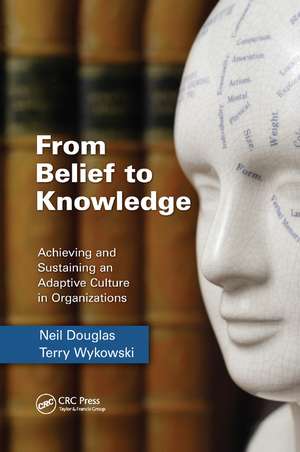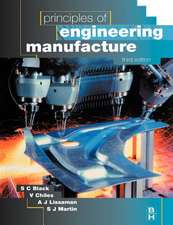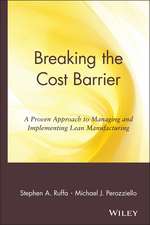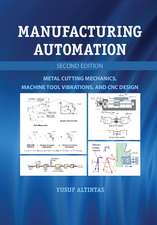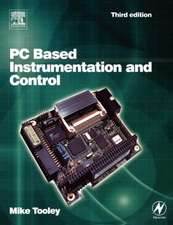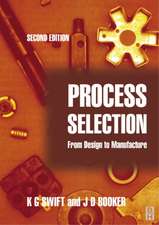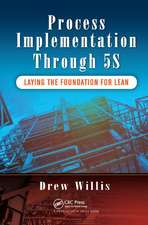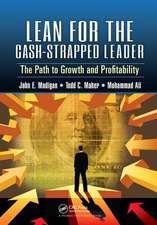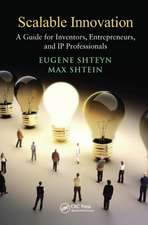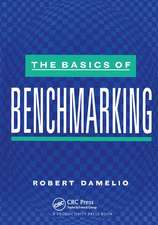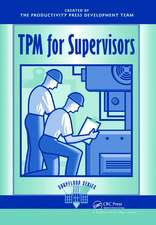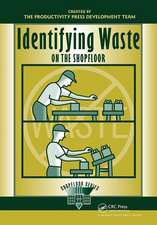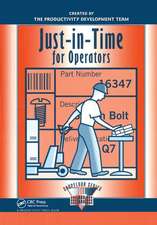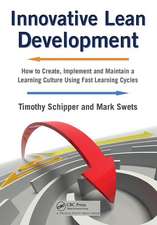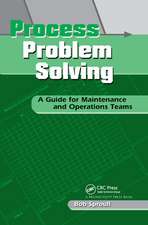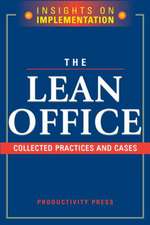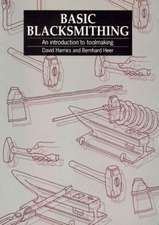From Belief to Knowledge: Achieving and Sustaining an Adaptive Culture in Organizations
Autor Neil Douglas, Terry Wykowskien Limba Engleză Paperback – 18 sep 2018
From Belief to Knowledge: Achieving and Sustaining an Adaptive Culture in Organizations offers potential change agents an integrative analysis and treatment of the problem of organizational learning. It demonstrates the importance of looking beneath beliefs and assumptions to find the roots and persistent influences that preserve them. It gives us a much broader definition of organizational knowledge than that associated with information technology and the currently popular idea of knowledge as an asset. Furthermore, it provides an alternative view of culture and change, one that is defined by the ability to continually align collective beliefs with reality.
"Douglas and Wykowski…answer the question that lingers in the minds of many managers – What does organizational learning mean and how does it influence ongoing organizational success?"Rather than offer simple recipes, this book shows how good leaders can evolve and sustain an adaptive culture that develops knowledge through purposeful human interaction. It explores key dynamics of learning, considers the diversity of beliefs present in any group, and demonstrates ways that those leaders can explore and encourage the potential of both the group and individuals within the group.
– Lee Newick, Shell Downstream
"Although this book is geared to organizational change, it has the potential to change all areas of human endeavor."
– David Julian Hodges, City University of New York
Preț: 432.16 lei
Preț vechi: 469.74 lei
-8% Nou
Puncte Express: 648
Preț estimativ în valută:
82.70€ • 88.43$ • 68.95£
82.70€ • 88.43$ • 68.95£
Carte disponibilă
Livrare economică 28 martie-11 aprilie
Livrare express 13-19 martie pentru 30.84 lei
Preluare comenzi: 021 569.72.76
Specificații
ISBN-13: 9781138374393
ISBN-10: 1138374393
Pagini: 261
Ilustrații: 13
Dimensiuni: 156 x 234 x 17 mm
Greutate: 0.45 kg
Ediția:1
Editura: Taylor & Francis
Colecția CRC Press
Locul publicării:Oxford, United Kingdom
ISBN-10: 1138374393
Pagini: 261
Ilustrații: 13
Dimensiuni: 156 x 234 x 17 mm
Greutate: 0.45 kg
Ediția:1
Editura: Taylor & Francis
Colecția CRC Press
Locul publicării:Oxford, United Kingdom
Public țintă
Professional Practice & DevelopmentCuprins
Introduction. What Does It Mean to Know? Reality and Knowing. Epistemology - Theory of Knowledge. Anticipating Part Two – Applications. The Knowing Subject. Collective Knowing. Leaders. Culture.
Notă biografică
Neil Douglas and Terry S. Wykowski are Principals of the Oxford Consulting Group in Houston Texas. The Group’s focus is to blend expertise in outcomes oriented management with psychology and organizational behavior.
Recenzii
From Belief to Knowledge is a timely contribution to a key debate within the organizational studies literature – what is the role of knowledge in change processes within modern and complex organizations? Whilst leaders proceed in their leadership of organizations in the belief that they have a body of knowledge that they draw upon as they lead, it is often the case that their knowledge is essentially a series of assumptions or beliefs and these determine the decisions they make and the actions they pursue.
... This book puts forward the proposition that how we form the beliefs we hold significantly influences what we believe and is the key process in shaping our personal anchors in knowledge that informs our action. This well written, thoughtful and thought provoking book will challenge leaders to consider the fundamental differences between belief and knowledge. It provides a novel contribution in its integrative analysis of the issue of learning and change in organizations. It offers leaders and scholars of change a considered opportunity to explore the transitions along the continuum from belief to knowledge that can lead to sustainable change.
-- Sue Dopson, PhD, Rhodes Trust Professor of Organisational Behaviour, Director of Research Degrees, Said Business School, University of Oxford
Organizational learning has been defined in various ways. Soe of these definitions and designs for implementation have been elegant; some of them have been simplistic, yet none seem to have had a lasting impact. Douglas and Wykowski in From Belief to Knowledge address organizational learning as an integrated system, where knowledge provides the linkage to adapt to changing environments all the while delivering improved performance. They answer the question that lingers in the minds of many managers – what does organizational learning mean and how does it influence ongoing organizational success? I expect this book to be highly influential.
-- Lee Newick, General Manager – Contracting and Procurement, Global Manufacturing/Shell Downstream
From Belief to Knowledge represents a paradigm shift in understanding knowledge and has added significantly to critical thinking. The book has the potential to shift thinking from firmly held assumptions and beliefs to real knowledge when the reader has the courage and motivation to confront their beliefs in the search for truth. Douglas and Wykowski challenge us to become conscious of our own beliefs and how we form them, which affect all our actions. Although this book is geared to organizational change, it has the potential to change all areas of human endeavor. My understanding of culture and culture change has been greatly enhanced by this thorough scholarship and practical application to knowledge.
-- David Julian Hodges, PhD, Professor of Anthropology, Hunter College of the City University of New York
If you accept, as I do, that in a knowledge economy, the successful organizations are those that continuously invest in their knowledge producing capability, then this book provides valuable insights for thought and action. Uniquely, they make the case for the growth of knowledge as a defining characteristic of culture in contrast to the treatment of knowledge as one asset among many. Douglas and Wykowski drill down into theories of knowledge and, importantly, of knowing, to argue that multiple approaches to knowledge capability-building are required. They seek to translate these arguments into practice and then address what sort of leadership and human interaction are required.
-- Michael Earl, Emeritus Professor of Information Management, University of Oxford
... This book puts forward the proposition that how we form the beliefs we hold significantly influences what we believe and is the key process in shaping our personal anchors in knowledge that informs our action. This well written, thoughtful and thought provoking book will challenge leaders to consider the fundamental differences between belief and knowledge. It provides a novel contribution in its integrative analysis of the issue of learning and change in organizations. It offers leaders and scholars of change a considered opportunity to explore the transitions along the continuum from belief to knowledge that can lead to sustainable change.
-- Sue Dopson, PhD, Rhodes Trust Professor of Organisational Behaviour, Director of Research Degrees, Said Business School, University of Oxford
Organizational learning has been defined in various ways. Soe of these definitions and designs for implementation have been elegant; some of them have been simplistic, yet none seem to have had a lasting impact. Douglas and Wykowski in From Belief to Knowledge address organizational learning as an integrated system, where knowledge provides the linkage to adapt to changing environments all the while delivering improved performance. They answer the question that lingers in the minds of many managers – what does organizational learning mean and how does it influence ongoing organizational success? I expect this book to be highly influential.
-- Lee Newick, General Manager – Contracting and Procurement, Global Manufacturing/Shell Downstream
From Belief to Knowledge represents a paradigm shift in understanding knowledge and has added significantly to critical thinking. The book has the potential to shift thinking from firmly held assumptions and beliefs to real knowledge when the reader has the courage and motivation to confront their beliefs in the search for truth. Douglas and Wykowski challenge us to become conscious of our own beliefs and how we form them, which affect all our actions. Although this book is geared to organizational change, it has the potential to change all areas of human endeavor. My understanding of culture and culture change has been greatly enhanced by this thorough scholarship and practical application to knowledge.
-- David Julian Hodges, PhD, Professor of Anthropology, Hunter College of the City University of New York
If you accept, as I do, that in a knowledge economy, the successful organizations are those that continuously invest in their knowledge producing capability, then this book provides valuable insights for thought and action. Uniquely, they make the case for the growth of knowledge as a defining characteristic of culture in contrast to the treatment of knowledge as one asset among many. Douglas and Wykowski drill down into theories of knowledge and, importantly, of knowing, to argue that multiple approaches to knowledge capability-building are required. They seek to translate these arguments into practice and then address what sort of leadership and human interaction are required.
-- Michael Earl, Emeritus Professor of Information Management, University of Oxford
Descriere
Rather than offer simple recipes, this book shows how good leaders can evolve and sustain an adaptive culture that develops knowledge through purposeful human interaction. It explores key dynamics of learning, considers the diversity of beliefs present in any group, and demonstrates ways that those leaders can explore and encourage the potential of both the group and individuals within the group. It demonstrates the importance of unearthing beliefs to find the roots and persistent influences that preserve them. It gives us a much broader definition of organizational knowledge than that associated with IT and the currently popular idea of knowledge as an asset.
.
.
